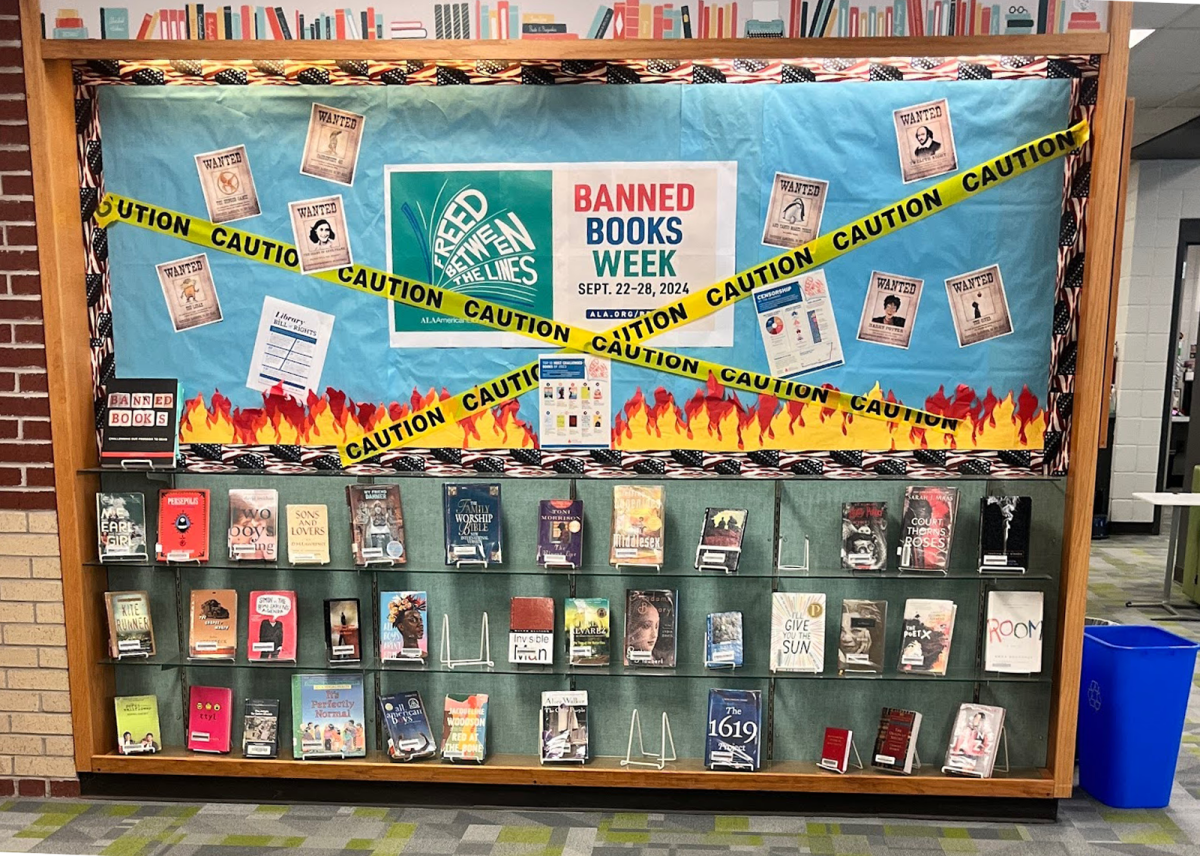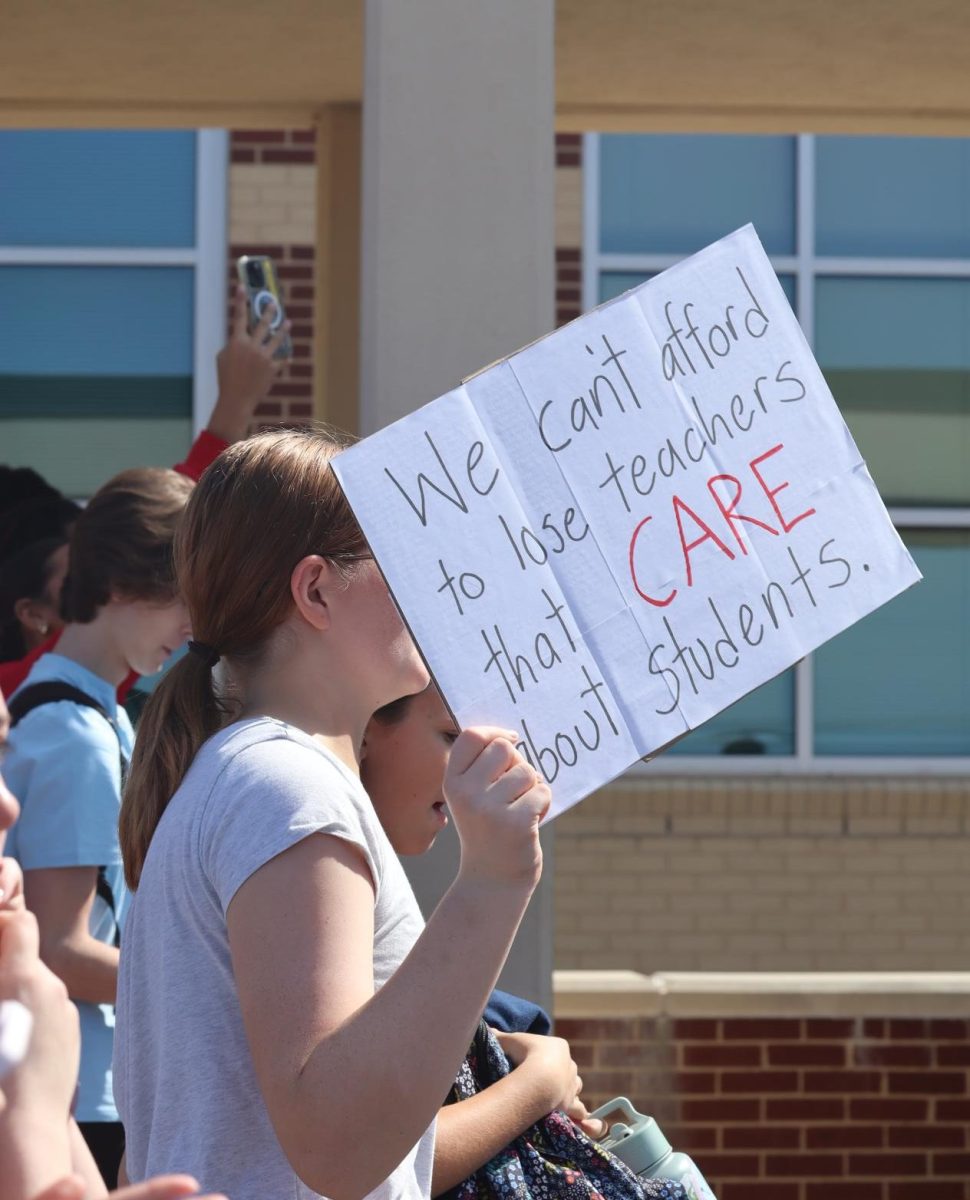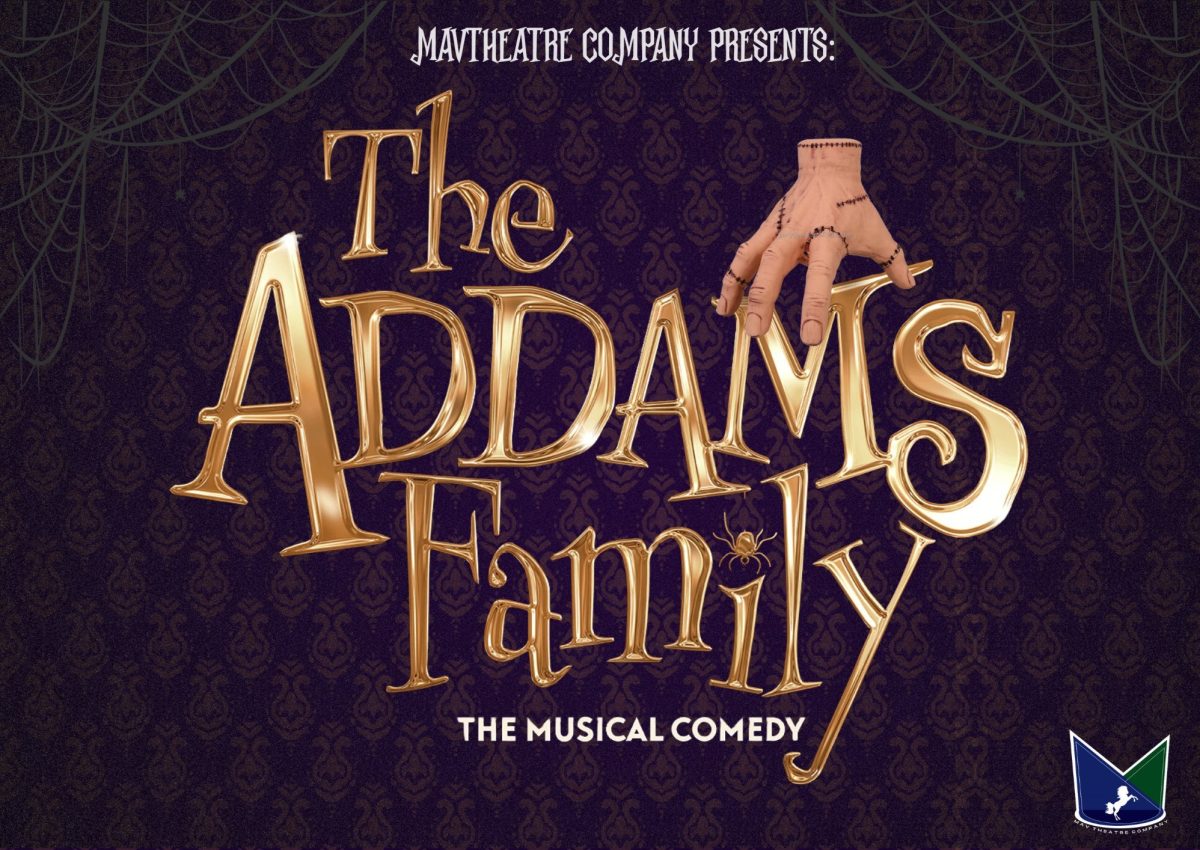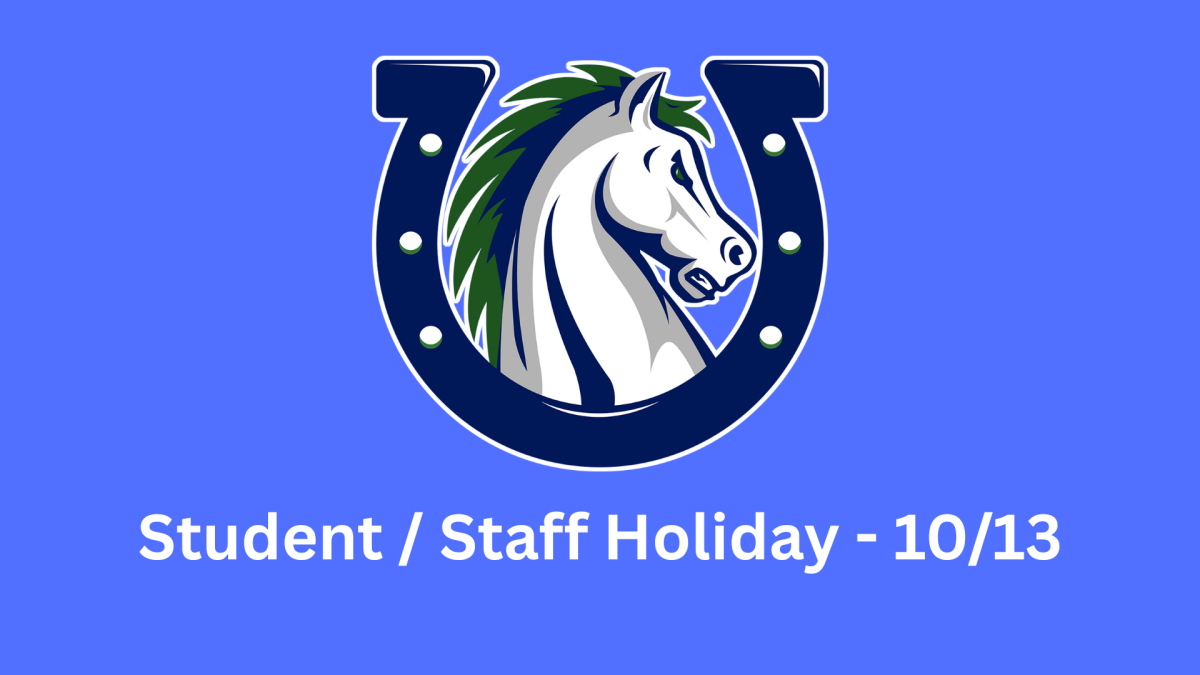Banned Book Week, annually hosted by the American Library Association, takes place the last week of September. The purpose of the week is to highlight banned books and the freedom to read without censorship. This past week, the library celebrated the annual Banned Book Week by displaying several banned books and an accompanied list of every banned book.
RRISD itself does not have any banned or challenged books due to the collection development policy which sets guidelines, but instead, they have banned books from other districts and other libraries around the country on display to read. In RRISD, the collection development policy usually prevents the librarians from having to pull books off of shelves.
“As a librarian I do not agree with banning books,” Librarian Amelia Lewis said. “But it is our job to make sure whether or not it is appropriate for school.”
The process of deciding whether a book is appropriate or not has many considerations at a high school with a wide range of ages and maturity levels using the same library.
“We’ve got adults that are 18 and they’re having to read college-level style books, so we have to have older style books for them and we’ve got to meet the needs of kids coming out of middle school who haven’t been as exposed to things,” Lewis said. “We’re very careful about making sure we think about where the students are in life.”
Banned books affect students all across America by stopping them from being able to make choices over what they read.
“Parents have the right to say what their kids can and cannot read, the real issue is when they start to try and make decisions for other students,” Lewis said. “It’s every parent’s right to be able to have those discussions with their kid but it’s not ok for people to come in and make the choice for you.”
Banning books also can affect students by preventing access to books about their individual interests.
“I think it’s unfair that books are banned because I can’t express my interests as thoroughly as I want to,” Senior Chloe Cifreo said. “Some of my interests are controversial so I [would] have to go out of my way to read these books if they are banned.”
With some districts stopping access to books kids cannot read about things that they want to, Lewis believes students should be able to read about things that interest them and should not be stopped because their city or district deprives them of access.
“I think it’s important for kids to know about banned books and then if the book is interesting to them, I feel like they should be able to read them,” Lewis said. “Some of the books might not be of interest to them and that’s okay, they don’t have to read all of the books.”
Banned Book Week is made to help shed light on First Amendment issues to protect student’s rights to read and the library is aiding in bringing attention to even some books that may have been banned to the surprise of many.
“Almost every religious text has been banned at one point in time,” Lewis said. “So you’ll see on our display we have the Bible, the Quran and the Talmud, I mean like all different types of religious texts.”
Recognizing that some of these titles could have some heavy material in them can often cause students that can use them to not be able to access them.
“In Oklahoma a book about the US Constitution was banned,” Lewis said. “People make decisions about what they think is right and wrong and it all has to do with their family choices, but I don’t see anything wrong with the US Constitution.”














